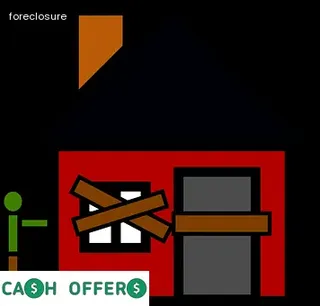Navigating Kentucky foreclosure laws and procedures can be a daunting task, but it is possible to protect your home if you understand the process. In Kentucky, lenders must file a lawsuit in court to foreclose on a mortgage loan.
This is known as judicial foreclosure. The first step in the process is for the lender to file a complaint with the court, which outlines their claim and why they are entitled to relief.
The homeowner then has 20 days to respond with an answer or other defense. If no response is filed, the lender can obtain a default judgment from the court.
The next step involves the lender requesting that the court issue a writ of possession, which allows them to take possession of the property if it is not paid off within 28 days of issuance. Following this, the homeowner may be subjected to eviction proceedings if they have not vacated the premises by that time.
During this entire process, homeowners should keep close track of deadlines and contact an attorney for help if needed.

In Kentucky, homeowners have the right to be informed of their options before foreclosure occurs. Homeowners must receive a notice from the lender at least 30 days in advance of filing for foreclosure.
This notice should include contact information for housing counseling services and provide an explanation of the homeowner’s rights during the foreclosure process. Additionally, homeowners have the right to dispute the lender’s claim of default and request mediation before sale.
If a home is sold in a foreclosure auction, any unpaid mortgage balance will stay with the borrower even after they no longer own the home. The borrower also has a right to redeem their home within six months of sale by paying off all debts associated with it, including costs related to court proceedings or fines.
Homeowners facing foreclosure must understand their rights in order to protect their property and mitigate potential financial losses associated with losing a home.
In Kentucky, before a foreclosure can take place, property owners must be provided with pre-foreclosure notices and procedures. This notification is typically sent by the lender to alert the homeowner of the possibility of foreclosure proceedings.
The notice will provide important details such as delinquency dates, loan amounts, and contact information for both the lender and borrower. After receiving this notice, homeowners are given an opportunity to bring their loans current or negotiate alternative solutions with the lender.
If these efforts fail and the property owner fails to make payment arrangements, then foreclosure may proceed. During this process, lenders must comply with state laws around posting public notices in local newspapers and filing documents in county court records.
Homeowners should ensure they understand their rights during this period as they may be able to delay the foreclosure if certain requirements are met.

If you are a homeowner in Kentucky facing foreclosure, it is important to understand the laws and procedures that govern the process. Knowing your rights and options can help you take the necessary steps to protect your home from repossession.
Foreclosure proceedings in Kentucky typically begin with a notice of default sent by the lender to the borrower. This document notifies the borrower of their overdue payments and outlines what they must do to cure the default.
In Kentucky, homeowners have 30 days to cure any defaults on their loan before foreclosure proceedings can begin. During this window, homeowners may be able to negotiate a repayment plan or loan modification with their lender, which can help them avoid losing their home.
If that is not an option, filing for bankruptcy can help stop a foreclosure by giving homeowners additional time to resolve their debt issues. Furthermore, some state programs may allow homeowners to refinance their mortgages at lower interest rates, thus making it easier for them to remain current on payments.
Ultimately, understanding how Kentucky's foreclosure laws work and taking advantage of available options is key in preventing your home from being foreclosed upon.
The process of navigating Kentucky foreclosure laws and procedures to protect your home starts with understanding mortgage loans. A mortgage loan is secured by a property as collateral, meaning that if the borrower fails to make payments, the lender has the right to reclaim the property through a foreclosure process.
The Kentucky statutes regulate how lenders can proceed with these foreclosures, so it is important for homeowners to be aware of their rights while making payments on their loan. A missed payment will trigger a delinquency status and lenders must give at least 30 days notice before initiating any foreclosure proceedings.
If a homeowner is unable to make up missed payments or negotiate with the lender, they may still have options available such as refinancing or entering into a repayment plan before the lender can begin foreclosure proceedings. It’s important for homeowners in Kentucky to understand their options when dealing with mortgage loans and missed payments in order to protect their home from foreclosure.

In Kentucky, a breach letter is the first step in a foreclosure process. It is sent by the lender to the borrower and includes information on how much they owe and when it must be paid.
If the loan remains unpaid after this deadline, then foreclosure proceedings will begin. This letter must adhere to certain guidelines as laid out by Kentucky law, including providing clear and concise details of the loan agreement, as well as any applicable fees associated with late payment.
It should also provide information on how to contact the lender if the borrower needs additional assistance or has questions about their loan. After receiving the breach letter, it is important for borrowers to act promptly to seek legal advice and protect their rights before foreclosure proceedings can begin.
Seeking professional guidance from an experienced attorney is essential in understanding all of Kentucky’s laws related to foreclosure proceedings and ensuring that homeowners are aware of all their options when facing foreclosure.
Reinstating a mortgage before foreclosure sale in Kentucky is an option available to homeowners who have fallen behind on their payments. The process involves identifying the loan’s total amount due and paying this amount in full within a certain period of time.
This option can provide many homeowners with much needed relief, allowing them to keep their homes and avoid further penalties. In order to successfully reinstate a mortgage, it is important that homeowners understand the laws and procedures surrounding the foreclosure process in Kentucky.
It is also essential that they have access to financial resources to cover the payment necessary for reinstatement, which includes all delinquent payments, any applicable fees and interest, as well as any taxes or insurance premiums that may be due. Additionally, potential buyers of foreclosed properties should familiarize themselves with Kentucky’s laws and requirements related to purchasing foreclosed properties so that they can ensure a safe and legitimate purchase.
Navigating Kentucky’s foreclosure laws and procedures can help protect both current homeowners from losing their homes and potential buyers from making an unwise purchase.

When a foreclosure sale has taken place in Kentucky, the homeowner still has some rights. Under Kentucky law, homeowners have the right to redeem the property within one year of the sale date.
This period is known as the redemption period and provides an opportunity for homeowners to protect their home from foreclosure. However, it is important to understand that the redemption period only applies if certain conditions are met and may be limited or denied in some cases.
To protect your home from foreclosure, it is important to research and understand your rights under Kentucky law regarding redemption periods after a foreclosure sale. It may also be beneficial to seek legal advice so you can make sure you are taking advantage of all available options to protect your home from foreclosure.
Eviction after a foreclosure sale in Kentucky can be a difficult process to understand due to the various laws and procedures that are in place. Knowing the rights of both the homeowner and lender is essential when navigating through this situation.
When a home is foreclosed upon, the lender then has legal authority over the property. Once that happens, they may choose to evict any existing tenants or occupants of the home so they can move forward with their plans for the property.
Thankfully, Kentucky provides certain protections for tenants that have been affected by a foreclosure sale. For example, if an eviction notice is issued without cause or without proper legal backing, it is not valid and does not hold up in court.
It is important for renters to take action if they feel their rights have been violated during a foreclosure sale to ensure their rights are protected. Additionally, lenders must go through specific steps before an eviction notice can be issued and it must be done in accordance with state law.
Understanding the aspects of eviction after a foreclosure sale in Kentucky can help homeowners protect themselves from potential abuse of power from lenders or landlords.

Navigating Kentucky Foreclosure Laws and Procedures can be a daunting task for homeowners facing foreclosure. It is important to be aware of the options available to protect your home, as well as the legal processes involved.
Fortunately, there are several resources available to help homeowners in Kentucky understand their rights when facing foreclosure, including free legal advice services, informational websites and public assistance programs. Legal professionals can provide guidance on understanding the process of foreclosure in Kentucky, including how long it takes for a property to be foreclosed and what happens afterwards.
Public assistance programs such as HUD's Kentucky Foreclosure Prevention Program offer counseling services and financial aid to help struggling homeowners keep their homes or find alternative housing solutions. Finally, websites like the Kentucky Department of Financial Institutions provide comprehensive information about state laws and regulations related to foreclosure, helping homeowners make informed decisions.
Federal laws protect homeowners from unlawful actions by lenders during the foreclosure process, and this is especially true for those facing foreclosure in Kentucky. The Truth in Lending Act (TILA) is a federal law that requires lenders to provide borrowers with certain disclosures before entering into a loan agreement.
This allows borrowers to make informed decisions about their mortgage and protects them from any deceptive practices. Additionally, the Homeowner's Protection Act of 1998 provides additional protections for borrowers facing foreclosure in Kentucky by making it illegal for lenders to require private mortgage insurance after a certain point in the loan.
Furthermore, the Fair Debt Collection Practices Act (FDCPA) prevents lenders from using unfair or deceptive practices when collecting debts and prohibits them from harassing borrowers. Finally, the National Consumer Credit Protection Act (NCCPA) gives homeowners additional protection by prohibiting lenders from engaging in unfair or unconscionable conduct when dealing with foreclosures.
By understanding these federal laws, homeowners can better understand their rights and navigate Kentucky's foreclosure laws and procedures to protect their home.

Navigating Kentucky's foreclosure laws and procedures can be a difficult process for homeowners. It is important to understand the state laws governing the foreclosure process in order to protect your home and rights as a borrower.
In Kentucky, the foreclosure process begins when a lender sends a notice of default to the borrower. This notice informs the borrower that they are behind on their payments and must either pay back what they owe or face possible legal action.
Once this notice is sent, the lender has 30 days to file a lawsuit if payment is not received. If a lawsuit is filed, then the court will decide whether or not to grant the lender's request for foreclosure.
Once granted, an auction can take place where the property will be sold off to cover any outstanding debt owed by the borrower. However, Kentucky law provides borrowers with certain protections such as allowing them to negotiate with their lenders and potentially avoid foreclosure altogether.
Additionally, there are other options available such as loan modification or refinancing that could help keep homeowners in their homes without going through foreclosure proceedings. Understanding all of these steps and protections offered by Kentucky law is essential in making sure you are able to protect your home from foreclosure.
Different types of loans can have a significant effect on the foreclosure process. For example, adjustable-rate mortgages (ARMs) are often used by those who can’t afford to make large monthly payments up front, but need the flexibility of a variable rate loan that adjusts over time.
If the ARM adjusts to a rate that is too high for you to afford, it can put you at risk of foreclosure. Additionally, FHA loans provide protection against foreclosures by requiring lenders to consider various forms of loss mitigation before initiating a foreclosure action.
Furthermore, VA loans are designed specifically for veterans and may offer some additional benefits in the case of a foreclosure. In Kentucky, knowing your rights and responsibilities when it comes to different types of loans is key in navigating the state’s foreclosure laws and procedures successfully in order to protect your home from being taken away from you.

When a home is foreclosed upon in Kentucky, the homeowner may be responsible for any remaining balance of the loan after all proceeds from the foreclosure sale have been applied to it. This is known as a deficiency judgment.
The lender has the right to pursue a deficiency judgment against the homeowner if they are not able to recoup all of their losses through the foreclosure sale. While state law does provide some protections for homeowners, navigating Kentucky’s foreclosure laws and procedures can be complicated and difficult.
It is important for homeowners facing foreclosure to understand their rights under Kentucky law and how deficiency judgments may impact them if they are unable to save their home from foreclosure. Homeowners who seek legal representation can ensure that they are best protected throughout the process and that their rights are respected during this difficult time.
Falling behind on mortgage payments can be a frightening experience, especially if you are at risk of losing your home. It is important to understand your rights and the Kentucky foreclosure laws that protect homeowners in order to ensure that you take the best steps to protect your property.
If you cannot afford your mortgage payment, the first step is to contact your lender and explain your situation. Many lenders will work with you to create a repayment plan or modify the loan terms so that you can remain in your home.
You may also be eligible for state-sponsored programs such as Kentucky Homeownership Protection Center which provides free counseling and advice about foreclosure prevention. Additionally, there are laws designed to give homeowners time before the foreclosure process begins in order to give them an opportunity to get back on their feet financially.
Finally, it’s important to talk with an attorney who specializes in real estate law as soon as possible since they can provide legal guidance related to defending against foreclosure proceedings or negotiating a loan modification agreement with your lender. Taking these steps can help ensure that you are well informed and doing everything possible to keep your home while remaining up-to-date with your mortgage payments.

When trying to save your home from foreclosure, it is important to be aware of potential scams and fraudulent activities that can take advantage of desperate homeowners. It is important for Kentucky homeowners to understand their rights and options when facing foreclosure in order to protect their home and finances.
Researching local resources can help you find reputable organizations offering assistance with navigating foreclosure laws and procedures. Finding a reliable housing counselor or lawyer who specializes in foreclosure laws can also help you determine which strategies may be available for keeping your home.
Additionally, be sure to verify any offers you receive from people claiming they can help you stop the foreclosure process by having them provide written proof of the services they will provide. Be wary of anyone demanding large fees up-front with no guarantee that they will actually provide the promised services.
Finally, never sign any documents without first reading them thoroughly and understanding what they mean. Taking these steps should help reduce the risk of being taken advantage of while trying to save your home from foreclosure in Kentucky.
In Kentucky, homeowners facing foreclosure are faced with a difficult decision: should they let their house go into foreclosure or attempt to protect it? There are both pros and cons to letting your home enter foreclosure in the state. On one hand, the homeowner may be able to avoid paying late fees, interest payments, and other debts associated with the mortgage.
However, allowing a home to enter foreclosure comes with serious consequences for the homeowner's credit score and future prospects for homeownership. Bankruptcy can also impact the Kentucky foreclosures process.
In some cases, filing for bankruptcy can give homeowners more time to work out a payment plan with their lender or even stop the foreclosure process altogether. Homeowners who cannot stop their foreclosure have options such as negotiating a deed-in-lieu of foreclosure with their lender in order to avoid eviction and minimize damage to their credit report.
Additionally, some banks offer loan modifications which could help reduce monthly payments and prevent a foreclosure from occurring. Ultimately, each situation is unique and requires careful consideration before making any final decisions.
In Kentucky, the foreclosure process can take anywhere from three months to a year and a half depending on the specific laws of each county. Foreclosure proceedings begin when an individual falls behind on their mortgage payments by at least three months.
The lender then files a lawsuit against the homeowner in the local circuit court, which is the beginning of the formal foreclosure process. Once initiated, it typically takes between 90 and 120 days for a foreclosure sale to be completed.
However, this timeline can greatly vary from county to county due to differences in Kentucky’s foreclosure laws. In some instances, homeowners may be able to delay or even stop the foreclosure process altogether if they are able to negotiate with their lender or file for bankruptcy protection.
It is important for homeowners facing potential foreclosure in Kentucky to understand their rights and work with an experienced attorney who can help them navigate their state’s unique foreclosure laws and procedures to protect their home from being taken away.

There are a variety of reasons why people may let their house go into foreclosure, such as financial hardship or loss of employment. In Kentucky, foreclosure is a legal process whereby the lender takes back ownership of the home due to non-payment of mortgage payments.
The foreclosure process can be difficult to navigate and can have long-term consequences for homeowners, including damage to their credit ratings. Understanding the laws and procedures associated with Kentucky foreclosure is essential in order to protect your home and rights as a homeowner.
Financial hardship may be caused by an inability to keep up with rising mortgage payments, medical bills, or other unexpected expenses that put too much strain on an already tight budget. Loss of employment is another common factor in foreclosures, as it deprives homeowners of the necessary income needed to make monthly payments.
Unfortunately, many homeowners are not aware of their options when it comes to navigating Kentucky foreclosure laws and procedures. It is important to research all available options before considering foreclosure as a solution in order to protect your home and save yourself from future financial difficulties.
Foreclosures in Kentucky follow a specific process that must be followed by the lender in order to repossess the home. First, the lender must file a foreclosure lawsuit against the homeowner, which states that the homeowner has defaulted on their mortgage payments and is subject to foreclosure.
Then, the court will issue a summons for the homeowner to appear in court for a hearing. After that, if the homeowner does not respond or does not satisfy their financial obligations, then a court-appointed attorney will post a notice of sale outside of the property.
This allows potential buyers to bid on the property and if there are no bids, then the lender can take back possession of it. In order to protect your home from foreclosure in Kentucky, you should make sure that you are aware of your rights under state law and keep up with all notices sent by your lender.
Additionally, it is important to know what resources are available to help you avoid foreclosure such as legal aid organizations and government programs. Being informed and prepared will greatly increase your chances of preventing or delaying foreclosure proceedings in Kentucky.
If you are a homeowner in Kentucky who is at risk of foreclosure, you have options to protect your home. It is important to understand the Kentucky foreclosure laws and procedures to help ensure the best possible outcome for your situation.
In order to stop foreclosure in Kentucky, homeowners should take action as soon as possible. If you fear that you may be facing a potential foreclosure, contact a housing counselor or legal aid office right away.
A housing counselor can assist you with creating a budget, negotiating with lenders, and reviewing loan modification options. Additionally, they may be able to refer you to state and local programs that provide assistance to homeowners facing foreclosure.
Additionally, if you are already in the process of foreclosure, there are steps that can be taken to prevent it from occurring altogether. It is important to review any documents sent by your lender and attend court hearings when scheduled.
Homeowners may also consider filing Chapter 7 bankruptcy which could suspend the foreclosure process while further arrangements are negotiated with the lender. Taking proactive steps as early as possible can help protect your home from foreclosure in Kentucky.